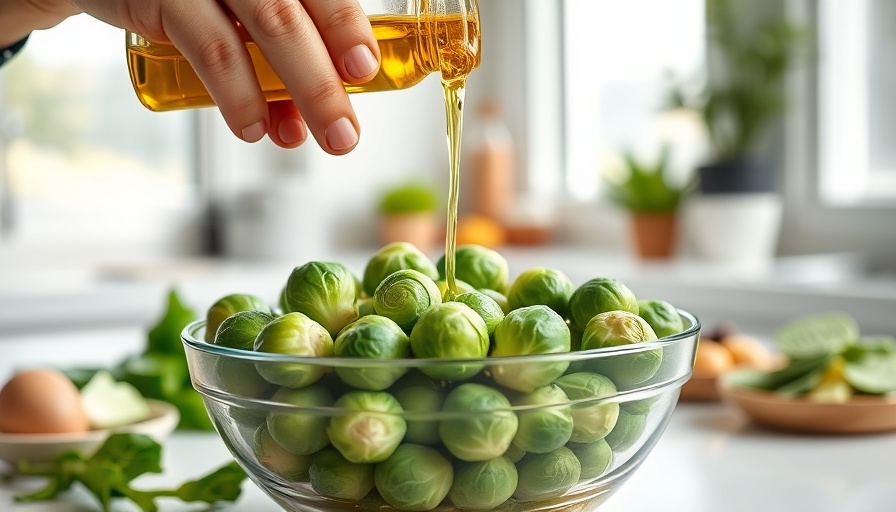
Seed Oils Unmasked: The Truth Behind Their Health Impact
The culinary landscape has seen a rise in the use of seed oils, but are they friend or foe when it comes to our health? With the prevalence of ultra-refined oils such as canola, soybean, and corn oil on grocery shelves, understanding their implications on our health has become crucial. Seed oils are derived from the seeds of plants, and while they provide versatile cooking options, their processing methods and chemical compositions have sparked debate.
What Are Seed Oils?
Seed oils, including the infamous “hateful eight”—sunflower, corn, canola, soybean, cottonseed, grapeseed, safflower, and rice bran—are commonly used in foods today. Each oil has its unique characteristics, but the fatty acid profiles they share can lead to skepticism among health enthusiasts. Critics argue the high omega-6 content in these oils may contribute to chronic inflammation.
The Omega-3 and Omega-6 Debate
A core argument against seed oils revolves around omega-6 fatty acids, particularly linoleic acid. Some health advocates suggest that excessive consumption of omega-6 fatty acids can lead to inflammatory responses. However, a comprehensive meta-analysis reveals that this compound, at normal dietary levels, does not notably raise inflammatory markers in the body. Interestingly, omega-6 fatty acids can actually play a role in fighting inflammation, supporting cardiovascular health and enhancing glucose metabolism—as underscored by findings in the International Journal of Molecular Sciences.
How Are Seed Oils Made?
Understanding the production processes behind seed oils sheds light on their nutritional profiles. Typically, the extraction involves crushing the seeds, employing chemical solvents, and deodorizing to stabilize flavours and enhance shelf life. While critics voice concerns about chemical residues such as hexane, regulations in Canada ensure permissible safety levels in seed oils. For those prioritizing holistic health, looking for cold-pressed or organic options can mitigate some of these concerns.
Why Seed Oils Get a Bad Rap
The reputation of seed oils may stem from misinformation. Enthusiasts of a whole foods diet often promote natural fats like olive oil or coconut oil, citing their perceived health benefits. However, evidence suggests that seed oils, when used in moderation, can be part of a balanced diet. Emphasizing a diverse intake of fats is integral—while incorporating sources like omega-3-rich chia and flax seeds is commendable, not all fats can be demonized.
Examining Cultural Perspectives on Oils
Diverse cultures incorporate various fats into their cuisines, which speaks to their nutritional relevance. Mediterranean diets favour olive oil for its heart-healthy properties, while Southeast Asian cooking often utilises palm oil. Thus, understanding cultural dietary practices can add depth to the ongoing discussion about seed oils, positioning them within a globally diverse culinary context.
Strategies for Healthy Eating with Seed Oils
To adopt a healthier approach to cooking with seed oils, consider these actionable tips: 1) **Moderate Usage**: Use seed oils sparingly alongside healthier fats. 2) **Balanced Diet**: Pair high-omega-6 oils with omega-3-rich foods like salmon or flaxseeds for balance. 3) **Cooking Temperatures**: Be mindful of smoke points; choose oils suited for high-heat cooking to reduce harmful compounds.
Concluding Thoughts on Healthy Living
With the growing trend towards wellness and healthier lifestyles, understanding the implications of the oils we consume is paramount. Whether it’s seed oils or otherwise, informed choices pave the way for holistic health. Engaging in nutritional education empowers everyone to tailor dietary habits that align with their personal health goals. To explore more insightful strategies on nutrition and wellness, consider reaching out to wellness coaches or participating in community wellness programs.
Prioritizing a balanced diet ensures that you can enjoy the diverse flavours that cooking has to offer, while also maintaining your health and wellness. Remember, knowledge is power on your journey to well-being!
 Add Element
Add Element  Add Row
Add Row 



Write A Comment